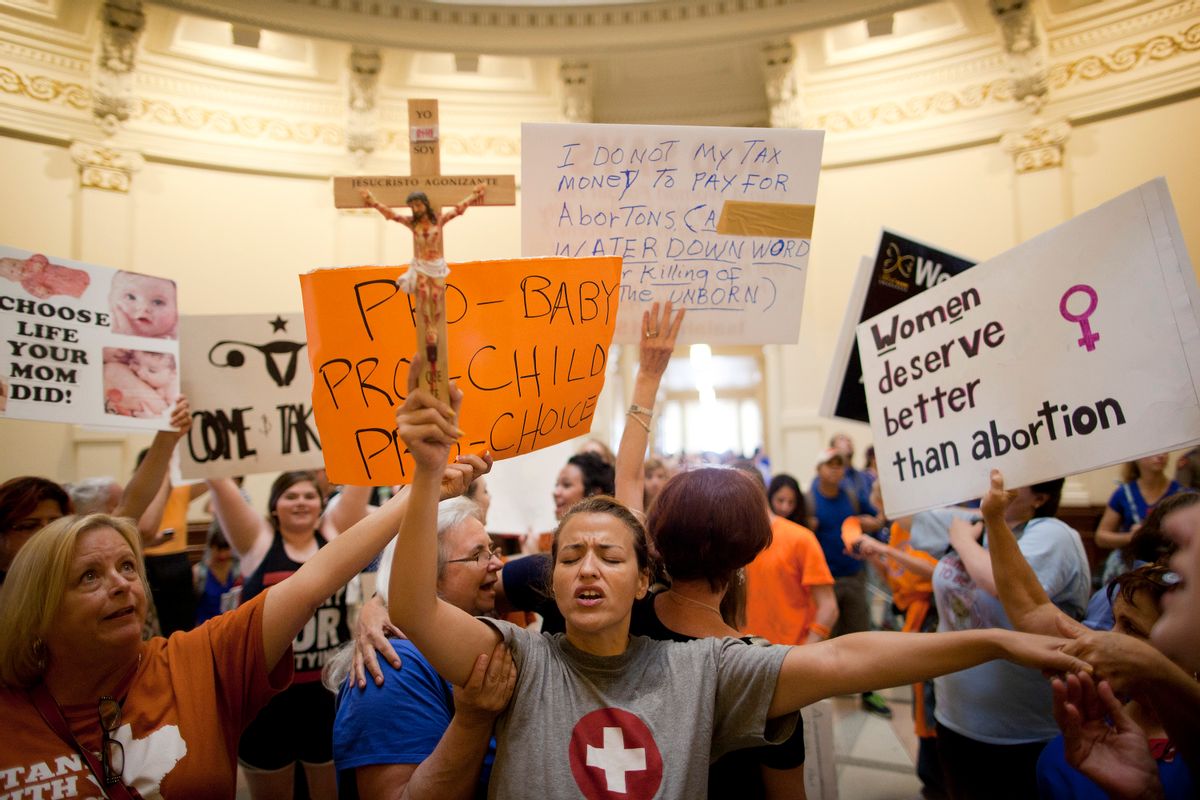A federal judge will hear closing arguments Wednesday in a case that will determine whether Texas can begin enforcing two provisions of its sweeping new abortion law, one requiring abortion providers to obtain admitting privileges at local hospitals and another regulating medication abortions.
The legal challenge was brought by reproductive rights groups and abortion providers, picking up where state Democrats left off in the fight against the antiabortion omnibus bill that passed the Texas Legislature this summer. The American Civil Liberties Union, the Center for Reproductive Rights, Planned Parenthood of Texas and abortion providers across the state have requested Judge Lee Yeakel block the implementation of both provisions, arguing each would severely limit the accessibility of legal abortion in Texas.
As Andrea Grimes at RH Reality Check notes, researchers from the Texas Policy Evaluation Project at the University of Texas say that provision requiring abortion providers to obtain hospital admitting privileges will force nearly one-third of abortion providers in the state to close their doors on Oct. 29, when the provision goes into effect. Likewise, medical experts testified this week that limits on medication abortions would require physicians to ignore medical best-practices in favor of outdated Food and Drug Administration guidelines, increasing the risk of complications. According to data from the Guttmacher Institute, one-quarter of abortions before nine weeks are medication abortions.
Representing the state, Texas Solicitor General Jonathan Mitchell said these provisions are necessary to "protect the health" of Texas women, and also represent the state's vested interest in "protecting the life of the unborn child,” according to Grimes' coverage of the hearing. Mitchell argued that because of this vested interest, the state has a right to impose “inconveniences on women seeking abortion in hopes that it may lead women considering abortion to consider childbirth instead.”
Both sides will present closing arguments Wednesday morning.
"I don't want a lot of rambling," said Yeakel of the closing arguments. "What I want is focused argument on this statute and why it lives or dies under the law as it exists at this time."
A ruling is expected Monday.

Shares